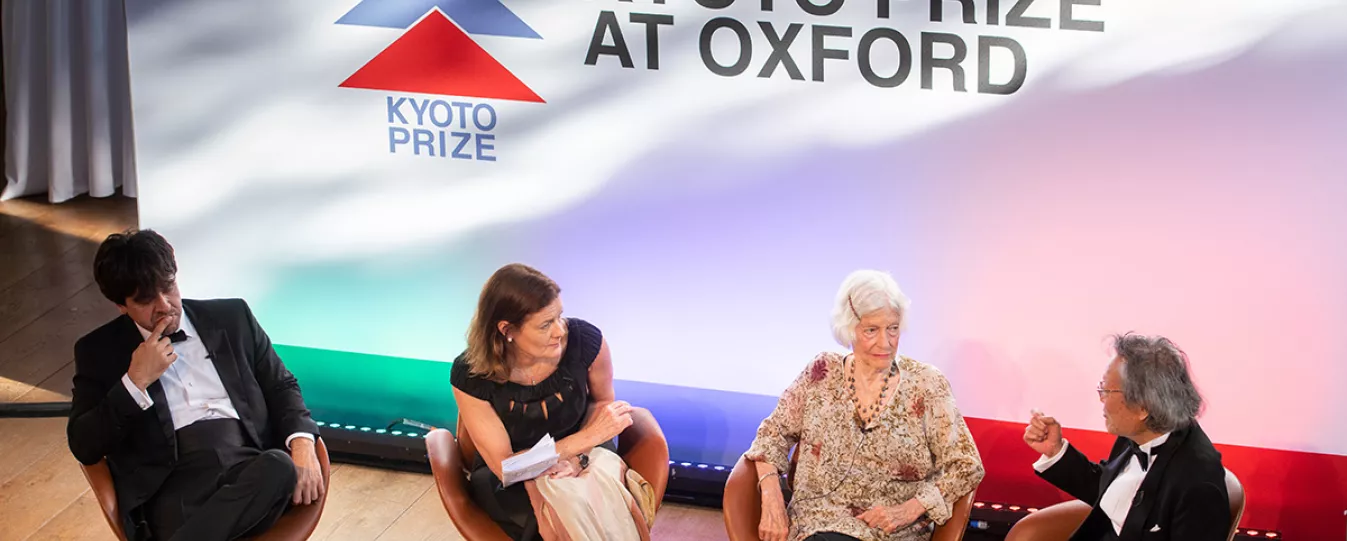From advancing algebraic analysis and developing novel ways to understand the brain to pioneering new forms of contemporary art, the Kyoto Prize Laureates convened in Oxford to share their incredible achievements and inspiration.
Neuroscientist Dr Karl Deisseroth is a pioneer of optogenetics, a breakthrough method for studying the brain which utilises light to activate neurons. The light activation allowed to observe the effects and the control of key behaviours such as pleasure, reward, and social interaction, as well as anxiety and depression. He illustrated this in his ‘Illuminating the brain’ lecture.
In his lecture ‘Fifty years with algebraic analysis’, mathematician Dr Masaki Kashiwara run through the events and collaborations that brought him to establishing the theory of D-modules, which was instrumental in the creation and development of a new branch of mathematics called algebraic analysis.
Acclaimed artist Joan Jonas has been at the forefront of contemporary art since 1968. Inspired by art history and rituals of different cultures (including Japanese Noh theatre), she integrated performance art and video art to develop a new form of art. In her lecture ‘Joan Jonas: 1968 to the present’ she took the audience on fascinating journey through the years.
The three Laureates also engaged in the Leadership Panel, which this year was held at the Sheldonian Theatre for an invited audience, including students from the Blavatnik School of Government. Chaired by Ngaire Woods, dean of the Blavatnik School, the discussion saw the Laureates explore the challenges they encountered in their careers, their experiences of collaborating across disciplines, and their hopes for the future. The panel discussion was followed by a dinner at neighbouring Divinity School.
A crucial part of the Kyoto Prize at Oxford is the opportunity for the Laureates to engage with an array of academics, researchers and students from across the University. The Department of Psychiatry hosted Dr Deisseroth for a visit; Dr Kashiwara spent an afternoon at the Mathematical Institute to meet with students and faculty there; and Ms Jonas was hosted by the Ruskin School of Art for a tour, discussion and screening.
The Laureates’ lectures were free and open to all, and over 450 attended the event over the course of two days. Visit the Blavatnik School of Government YouTube channel to watch the full recordings of the public lectures.
The Kyoto Prize Laureates for 2019 will soon be announced. We look forward to getting to know them before we host them for next year’s Kyoto Prize at Oxford in May 2020.
